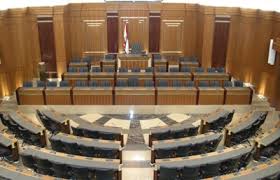
By Joseph A. KechichianSenior Writer – Gulf news
Beirut: The Speaker of the Lebanese Parliament, Nabih Berri, was adamant that his call to hold a regular legislative session was legal, despite the possibility that several Christian parties remained ambivalent about any participation.
Aware that a boycott may derail sorely needed legislation to curtail money laundering, boost the country’s banking sector, and further secure $600 million worth of key World Bank development funds, the Lebanese Forces (LF) leader Samir Geagea vowed that his party would not disrupt the Speaker’s contemplated initiatives. Geagea’s LF and the Free Patriotic Movement (FPM) accepted the compromise formula advanced by the Maronite Patriarch, Cardinal Mar Bisharah Al Ra‘i, who urged parliament to adopt several “technical actions” dealing specifically with financial laws.
“As Christians, it is our duty to call for the election of a president and for the restoration of the functions of the parliament, the cabinet and public institutions” said the Cardinal during the opening of 49th session of the Council of Catholic Patriarchs and Bishops held at the patriarchal seat at Bkerke. “We ask the parliament to take the necessary technical action with regard to the financial laws in light of the inability for normal legislation,” he added, which condoned an extraordinary gathering even if the Phalange Party and others rejected the premise.
The urgency arose after World Bank officials warned that the institution was ready to drop Lebanon from its list of aid receivers for years to come in the absence of the necessary financial legislation. What was under intense discussion on Tuesday was whether the recent LF-FPM agreement on a draft-law to restore the nationality of expatriates would be put aside for the duration of the emergency session to allow parliamentarians to at least solve a single concern instead of being confronted with impossible choices.
In fact, Speaker Berri was not particularly worried that parliament was transformed into an echo chamber, though his sense of urgency was most likely awakened by leading bankers and industrialists — and politicians — who stood to lose out from World Bank rules that, presumably, would have repercussions across the financial board. The two largest Christian parties that insisted on boycotting the sessions unless an electoral law was discussed were clearly playing the political game as well, ostensibly to telegraph that nothing substantial could get done without their active participation, even if everyone trampled over the Constitution at will when that was convenient but put the document aside when core financial interests were threatened.
According to the Lebanese Constitution, parliament ceases to be a legislative body when a president’s term ends, and becomes an electoral one until such time as its members elect a new head of state. Save for the first session after the last president’s term ended, Hezbollah and FPM deputies boycotted every sitting to elect a President, as both insisted on the necessity of agreeing on the potential candidate’s identity before gathering. Though ineffective, Speaker Berri enjoyed his parliamentary perch, and told the daily Al Safir a few days ago: “Given the choice between eating a dish that would make me sick and another that would kill me, I would choose the former,” explaining why he would hold the emergency legislative session in the absence of the LF and FPM.
To his credit, the Speaker criticised demands that other items, including the parliamentary electoral law or the contemplated nationalities law, should be included on this session’s agenda, describing them as a “joke”. “How can 17 draft electoral laws be included on the agenda,” he lamented before answering his own question with a wry: “The session would be adjourned before it is even held.”
Lebanese political parties failed to approve an electoral law despite months of debate in 2013, which prompted them to extend their own terms of office twice. They also failed to elect a president to replace Michel Sulaiman when the latter’s term expired on May 24, 2014.



